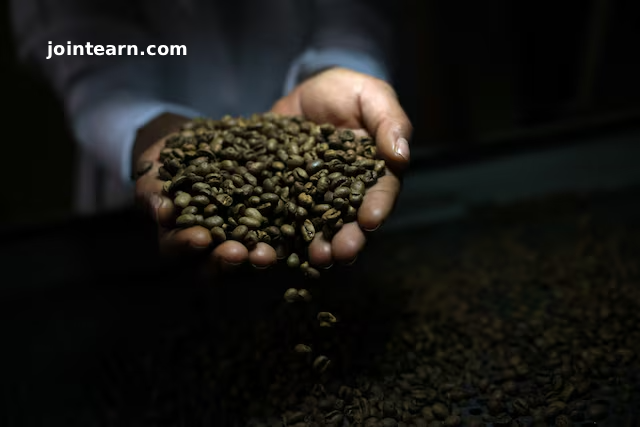
LONDON – November 21, 2025 – Global coffee prices fell sharply on Friday after U.S. President Donald Trump announced the removal of 40% tariffs on Brazilian agricultural products, including coffee and cocoa. The move comes amid mounting pressure over rising food costs in the United States, which have contributed to declining approval ratings for the former president, according to a Reuters/Ipsos poll.
The tariff rollback on Brazil follows a similar decision last week to ease duties on coffee and numerous other agricultural commodities from key producing countries. Brazil, the world’s largest coffee exporter, supplies roughly one-third of the United States’ coffee consumption, making the policy shift a significant factor in global coffee markets.
Sharp Drop in Coffee Futures
At 1017 GMT, arabica coffee futures on the ICE exchange, the global benchmark for coffee pricing, fell 4.6% to $3.5925 per pound, after earlier plunging over 6% to two-month lows. Robusta coffee futures, commonly used in instant coffee production, dropped 5% to $4,400 per metric ton, after an early decline of 8%.
Traders said the market is still digesting the news and warned that while further declines are possible, prices are unlikely to fall below $3 per pound for arabica beans. A Europe-based trader explained:
“The arabica crop remains in deficit, industry stocks are low, and certified exchange inventories are short. Weather risks from La Niña also persist, so the market still needs to buy.”
Impact on U.S. Consumers
The tariff removal is expected to alleviate pressure on U.S. retail coffee prices, which rose an annual 40% in September, partly due to the previous duties. Analysts say easing tariffs on Brazilian coffee could bring relief to American consumers facing elevated grocery bills and help stabilize the global coffee market.
Ongoing Market Factors
Despite the tariff rollback, several factors could continue to influence coffee prices in 2025:
- Supply deficits in arabica coffee production
- Low industry stock levels and limited exchange-certified inventories
- Weather risks associated with the La Niña phenomenon in Brazil and other major coffee-growing regions
- Continued demand from major consuming countries, particularly the U.S., Europe, and Japan
Industry observers note that while the short-term price shock has been significant, longer-term trends may support coffee prices as supply constraints persist and weather patterns affect crop yields.
“If anything, this is an opportunity for buyers to step in during market dips,” the trader added.
As global coffee trade continues to react to policy changes, the market will closely monitor Brazilian production levels, U.S. import trends, and climate impacts to gauge future price movements.


Leave a Reply